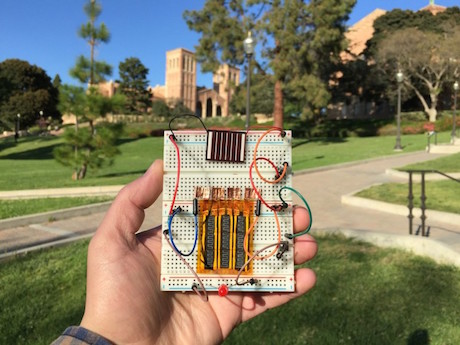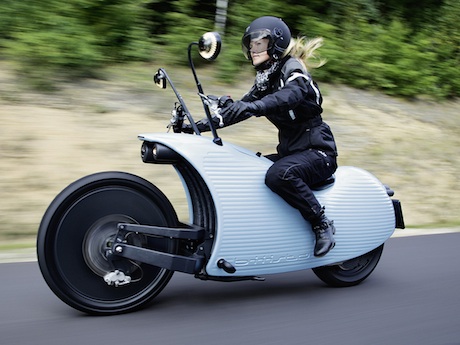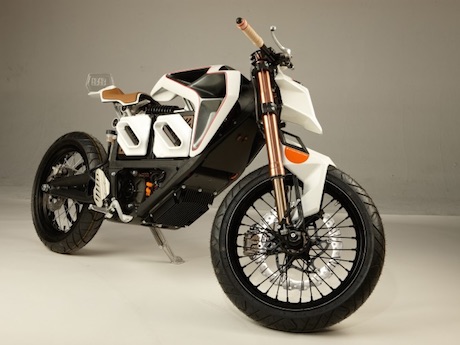Would you buy an electric motorcycle if it could be recharged in seconds, rather than minutes?
That’s the major hurdle in the acceptance of electric vehicles: Not range, but recharging time.
Many electric car and motorcycle companies, such as Zero and Brammo, now have acceptable range from their batteries and motors, but there are still long charging times of several hours which would leave motorists stranded.
However, researchers at the LA-based California NanoSystems Institute in the University of California believe they have developed a hybrid battery that could lead to electric vehicles being charged in a matter of seconds rather than hours. It could be the most significant leap forward for electric vehicles yet!
The new device – only small at this stage – combines the high energy storage of batteries with the quick charge and discharge rates of supercapacitors.

While the current (sic) hybrid is only small, the UCLA researchers believe they can build hybrid supercapacitors on a large scale to power motorcycles, cars and even your house.
Professor Richard Kaner and Dr. Maher El-Kady have built a high-performance hybrid supercapacitor that lasts more than 10,000 recharge cycles, stores six times more energy than a conventional super capacitor and holds more than twice as much charge as a typical thin-film lithium battery in one fifth the thickness of a sheet of paper.
A hybrid supercapacitor like this in a motorcycle would also have the advantage of being much lighter and smaller than the massive batteries being used in current electric motorcycles on the market.
That would improve handling and allow designers much more scope so that electric motorcycles didn’t look too awkward and odd like the Johammer J1.

The researchers also say their thin hybrid supercapacitors can be integrated inside a solar cell where they can be charged by solar power.
These solar panels, containing the hybrid supercapacitors could even be integrated in the panelling of a vehicle as suggested by Queensland University of Technology nanotechnology scientists.
QUT research leader Prof Munzio Motta says supercapacitors are a thin, light and strong film made of two all-carbon electrodes sandwiched around an electrolyte that could easily be placed within the bodywork of a sportsbike.


